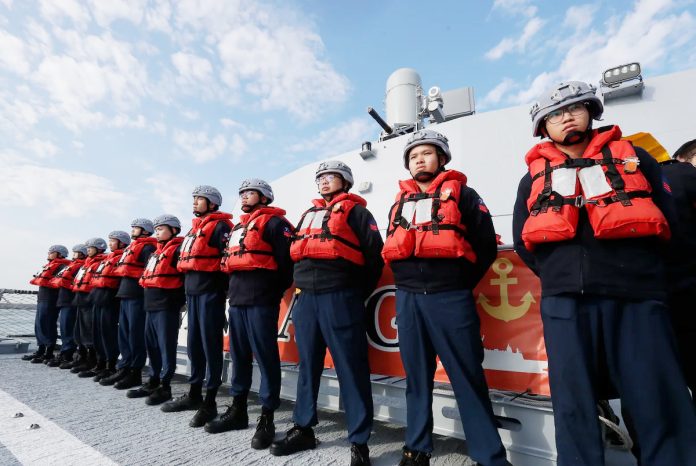TAIPEI, Jan 13: Taiwan’s intelligence bureau says China’s main spy agency is working with criminal gangs, shell companies and other dubious partners to gain intelligence on Taiwan’s defences, resulting in a major rise in those arrested for alleged espionage on the island.
Current and retired Taiwanese military personnel are a special concern, accounting for around half of the 64 alleged spies put on trial last year, it said. That number is up from 16 in 2021 and 10 in 2022.
The arrests are in line with China’s stepped-up campaign of military intimidation, economic coercion and “gray area” tactics such as utilizing the internet to promote unification and providing all-expense-paid trips to China to low-level government officials.
According to a report released over the weekend by Taiwan’s National Security Bureau, Chinese agents have sought to use the Taiwanese underworld to channel funds to those with information to sell. Gangs, many with origins dating to before the 1949 split between the two sides, are sought out, along with loan sharks, shell companies that can be used to launder funds, religious sects that sometimes engage in illegal activity, and non-profit groups, the report said.
Some payments are made in cryptocurrency, while old-fashioned methods are also used such as sexual seduction to trap unsuspecting targets and pressure them to reveal secrets. That was the case of a one-star general, Lo Hsien-che, who was caught in such a scheme while stationed in Thailand, the bureau said.
Among those arrested last year were 23 people working together in a spy ring, one of whom was sentenced to 20 years in prison, it said.
China’s main spy agency, the State Security Ministry, runs programs relying on traditional spy craft and cyberattacks, along with military intelligence, while the party’s United Front division runs propaganda campaigns.
China’s ruling Communist Party, which refuses most contact with Taiwan’s governing pro-independence Democratic Progressive Party, has frequent contacts with the main opposition Nationalist Party.
Chinese tactics may have had some effect on local elections, but the DPP appears to be firmly in control and the vast majority of Taiwanese still favour maintaining their de facto independence, backed by strong support from the US.
China’s recruitment of retired military personnel has been facilitated by many having been born in mainland China and backing unification between Taiwan and the mainland. Taiwan’s government has enacted time limits on when retired senior officers can visit the mainland and under what circumstances in an attempt to prevent their recruitment. (AP)
Trending Now
E-Paper


